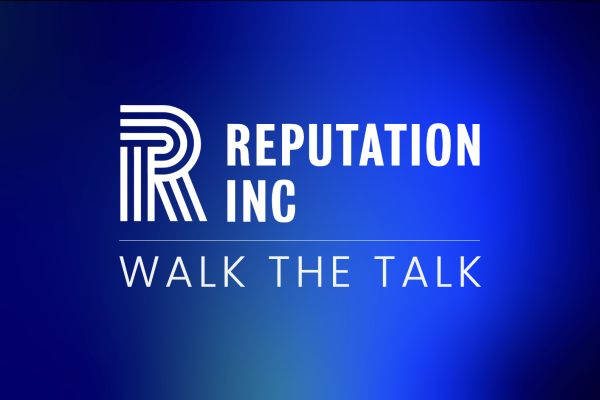
Slaying The Monster ‑ The Power Of Storytelling
“Today, I’m going to tell you a story about a 16-year-old boy with a remarkable talent as he sets out on a quest to slay an evil monster...”
In his insightful book, ‘The Seven Basic Plots’, author Christopher Booker finds that there are seven basic story plots that have universal appeal. These include the story of the hero defeating a monster, the rags-to-riches tale, the quest for treasure, and the voyage of a hero who comes back a changed person.
This well-proven structure in storytelling captures our attention, builds anticipation, establishes affinity with the character and places each of us in the moment – influencing the way we think and react. Storytelling is a key influential asset whether you’re a fairytale character or the leader of a global corporate entity.

"When all else is the same, the company with the best story, told the best way, will win."
We live in a highly connected world where even the smallest steps in sharing what we stand for as a business can have a big impact. This happens in many ways; through personal conversations, in presentation and meeting settings, and of course in the sharing of content across business and personal social media channels.
However, corporates now sit within a much more complex interplay with society. The line between the inside of a company and the outside world is blurred. Organisations now find themselves within a 360 degree environment, having to manage information on a whole series of fronts, with employees blogging and tweeting to the world outside; shareholder activists calling boards to account and environmental and consumer associations becoming increasingly better organised and quicker at campaigning.
The new model is much more dynamic and complex, and as a result it is incumbent on the organisation not only to manage the bottom line and their social responsibility projects but also to manage the way they are presented to stakeholders. In fact, in today’s world, it is simply irresponsible for businesses not to take their reputation and how this is managed seriously. Few would argue that the way an organisation is perceived has a direct impact on share price, its ability to attract and retain top talent and its role in the local community. The more complicated and savvy the market gets, so too does the advice that business requires.

"The rise of ‘citizen’ and ‘braided’ journalism, and the ability for consumers to share and rate material, has created a perfect storm for companies. In one move, the internet has empowered consumers and employees to be their own reporters and to hold corporates to account."
As a result, communications professionals have had to re-think how best to leverage and mitigate these channels and tools, while continuing to provide counsel on how best each business can maintain a constructive dialogue with its shareholders – mostly done through the medium of impactful, authentic storytelling.

In order to influence people you need to influence hearts and minds…
Stories have always been a way for humans to communicate core values. They provides a narrative for change and connect with people’s deepest motivation – promoting more radical action. When stories are grounded in values, they communicate a vision and not just a picture of the realities we face.
The companies that are most adept in shaping their own reputation use stories to create awareness and inspire engagement. And importantly, all are authentic to the audience and to the story. Cynics can easily sniff out phonies.
Stories address questions like: How do we want to make our customers and people feel? Why do consumers/ stakeholders and our people love us? What needs do we fulfil? And what do they value?
Stories inspire people emotionally – which is key to helping them make decisions – and therefore stories are a core function of change management in which there are clear calls-to-action and a choice/decision by each audience member as to whether to participate or not.
The best storytellers are those who are not distracted by trying to communicate the total picture, in detail, in as few minutes as possible. Instead, they have a laser-like focus on synthesising the bigger picture into manageable messages, taking their audience through a clear and concise path of messages that simplify the complexity. They do this by creating a story that is personable and inspiring, impactful and thought-provoking, in order to connect with the audience.
Because people don’t remember random facts – they remember stories and emotions. Storytelling cuts through the clutter. Today’s 24/7 news cycle means we are constantly overwhelmed with new information. In the newspapers, online, on our social media - everywhere. Yet the best speakers are good storytellers. The best writers are good storytellers. The best leaders are good storytellers. Stories leave a lasting impression. They inspire. They relax. They connect. They entertain.

As Maya Angelou famously said: “People will forget what you said, people will forget what you did, but people will never forget how you made them feel.”
Therefore in order to motivate change and inspire action, it’s vital for business leaders to spend some time thinking about how they’d like their business to come across. Most successful organisations will have a defined strategy, and a sense of what makes them different. But can you explain your organisation’s story in 100 words? Can you provide a clear and compelling account of what you do in one minute or less? Most businesses can’t. But if you can, it’s a huge advantage when looking to successfully ‘motivate’ your way of thinking and that of your company.
When you’re telling your story, try not to speak from OUTSIDE the experience using memorised words. Speak from within the experience, use your personal perspective to help the audience feel, see, and hear what YOU feel about your topic. Underneath it all, it is important to remind ourselves that our stakeholders are human and in order to influence them you need to influence their hearts and minds…

Because we all have our own monster to slay… the true magic of storytelling lies in its ability to change the world.



